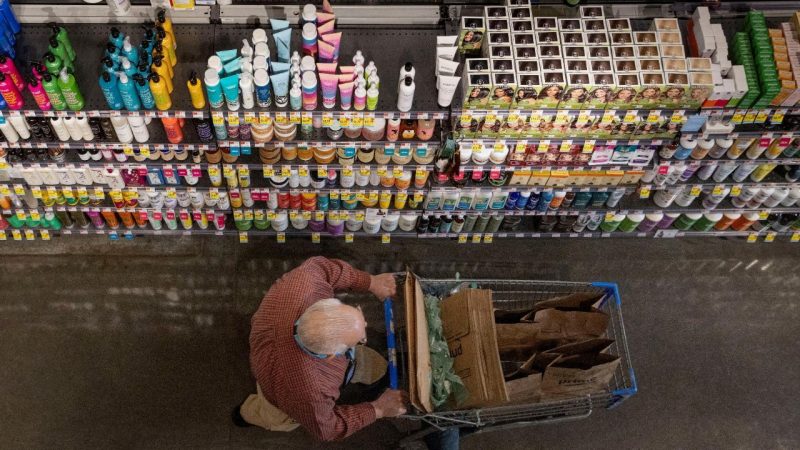Market Index Senior Market Analyst Matt Simpson expects the Reserve Bank of Australia to pause raising interest rates in six days’ time at its next meeting.
His prediction follows the release of the latest consumer price index (CPI) data, which showed a decrease of 0.7 per cent to 4.9 per cent annually.
Excluding volatile price changes like automotive fuel, fruit and vegetables, and holiday travel, the annual rise sits at 5.1 per cent, 0.4 per cent lower than the annual rise of 5.5 per cent in September.
“Market pricing suggested just a 10 per cent chance of an RBA hike in December, and today’s inflation figures suggest they may well be correct,” Mr Simpson said.
“At -0.4 per cent m/m, CPI contracted at its fastest monthly pace in three years and CPI less volatile items and travel has slowed to an 18-month low.”
Housing, food & beverage and transport
Despite the fall in Australian inflation, the drivers of the October annual increase were housing (6.1 per cent), food and non-alcoholic beverages (5.3 per cent), and transport (5.9 per cent).
In saying that, the housing situation appears to be easing, with the annual increase for housing of 6.1 per cent being lower than the 7.2 increase in September. As well, new dwellings rose 4.7 per cent, the lowest annual rise since August 2021.
Food and non-alcoholic beverages rose 5.3 per cent in the 12 months to October, up from the 4.7 per cent annual increase in September.
“While annual inflation continues to ease across most food categories, Fruit and vegetable prices are higher this month compared to 12 months ago, driven by price rises for melons and bananas,” Acting ABS Head of Prices Statistics Leigh Merrington said.
Automotive fuel prices were 8.6 per cent higher in October compared to 12 months ago, due to higher global oil prices. This is down from the annual increase of 19.7 per cent in September.
Yesterday’s retail sales data
Further indicating promise for a rates pause was the release of Australian retail sales data.
Yesterday, the ABS released retail sales data for October, revealing sales in October fell 0.2 per cent, following a rise of 0.9 per cent in September.
On a year-on-year (YoY) basis, October’s retail sales were also up 1.2 per cent.
Spending fell across all categories, except for food retailing.
“It looks like consumers hit the pause button on some discretionary spending in October, likely waiting to take advantage of discounts during Black Friday sales events in November,” ABS Retail Statistics chief Ben Dorber said.
Mr Dorber said it wasn’t out of the ordinary.
“This is a pattern we have seen develop in recent years as Black Friday sales grow in popularity.”
December rates decision
Given the two sets of data, critical to any rates decision for the RBA, it is increasingly likely that there could be more reprieve for mortgage holders come next week’s meeting.
“With market-based measure of inflation expectations also declining, consumers can likely take comfort that there’ll be no hike at the RBA’s December meeting,” Mr Simpson said.
However, yesterday, Oxford Economics Macroeconomic Forecasting chief Sean Langcake said he wasn’t convinced that a 0.2 per cent fall in sales for October, regardless of Black Friday, is enough to turn the RBA dovish.
“These data align with the narrative of fading consumer momentum … [but] they have little bearing on the RBA’s current struggle to rein in core inflation,” Mr Langcake said.”
“We still expect to see another increase in rates in the coming months.”
The RBA most recently upped the cash rate to 4.35 per cent. It will deliver its December decision next Tuesday.

